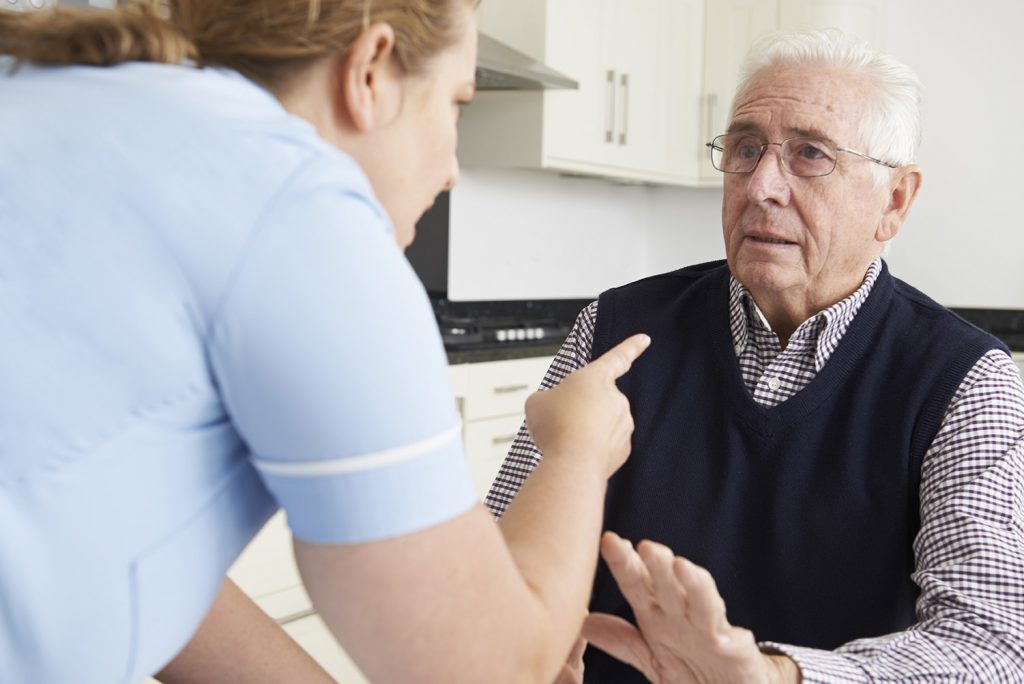
Throughout the country there are nearly 1.6 million people living in nursing homes and if you include residential care facilities, that number increases to nearly 2.6 million. By 2050, one in five people will likely be over 65, making a large portion of the population potential nursing home residents. This is significant because when people are placed in nursing homes, they are subject to the extraordinary risk of abuse.
If you have recently admitted a loved one to such a facility, you are likely already dealing with the emotional ache that accompanies such a transition. It’s hard enough to put your parent or grandparent in a nursing home. To then have to worry about the real problem of nursing home abuse is, frankly, unfair.
Abuse Is Common
To make things worse, it’s a relatively common affair. Ten percent of elderly Americans (over 60 years old) have experienced some form of abuse. And almost half of Americans suffering from dementia have been victimized in this way. Specifically, in nursing homes, somewhere around 44 percent of residents are abused, according to a survey conducted in 2000.
But how do you spot abuse? You can’t be around 24/7 and it’s not uncommon for an elderly person to have trouble communicating such occurrences. They may have been threatened or they may be confused; either way, you can’t always count on them telling you something occurred.
Emotional Signs
That being said, if you’re loved one does say something, be sure to follow up on it. Amy Jo Haavisto Kind, an expert in geriatrics, told US News that even if a person has cognitive issues (such as dementia) it’s imperative to pay attention: “[T]ake these statements seriously and investigate them thoroughly with the nursing home leadership,” she said, continuing, “They may be signs of mistreatment or neglect.”
Relatedly, it’s a good idea to pay attention to your loved one’s behavior around certain staff members. If your relative appears distraught or upset around particular people that might be a sign of abuse and should be checked.
Tangible Effects
Of course, there are more tangible effects to pay attention to as well. Any signs of physical injury should be thoroughly checked up on. Your loved one may, for instance, have inexplicable bone fractures, broken spectacles, rope-burn marks, bruises, cuts or scars. Additionally, if a staff member is particularly forceful about being with you while you visit your relative, this could mean they are wary of your relative making remarks about the abuse.
Financial Abuse
Your loved one may also be the victim of financial abuse. So you may want to keep an eye out for large withdrawals from his or her bank account. If you don’t have access to the account, you may want to see about getting a power of attorney. Major changes in bank account information could point to abuse in the nursing home.
Sexual Abuse
Elderly residents of nursing homes are sexually abused all too often and facilities do not handle these cases effectively enough. According to a CNN report published earlier this year, nearly 1,000 facilities were given citations for not properly handling sexual abuse incidents. For this reason, it is advisable to keep an eye out for signs of this type of abuse. Signs may include:
- Bloody undergarments
- Panic attacks
- STDs
- Pelvic injury
- Pain in the genital region
Neglect
When we talk about abuse, we must also bear in mind the injurious effects of neglect. In a way, neglect is a kind of abuse. To that end, there are some signs to watch out for. One sign is particularly difficult to spot, and when we do spot it, we may not think much of it. Dehydration can point to insufficient staffing, which in turn can indicate neglect.
According to Kind, “If a nursing home does not have the adequate number of high-quality staff, residents in that home may not receive all of the food or fluids they need to remain hydrated and nutritionally sound. Meals may even be completely missed.”
Once you believe you’ve spotted a sign of abuse or neglect, it isn’t a bad idea to ask staff members questions and to actively seek out answers. Of course, this can be a daunting task to take on yourself. To that end, it can be helpful to consult with an attorney who has experience in nursing home abuse cases.
